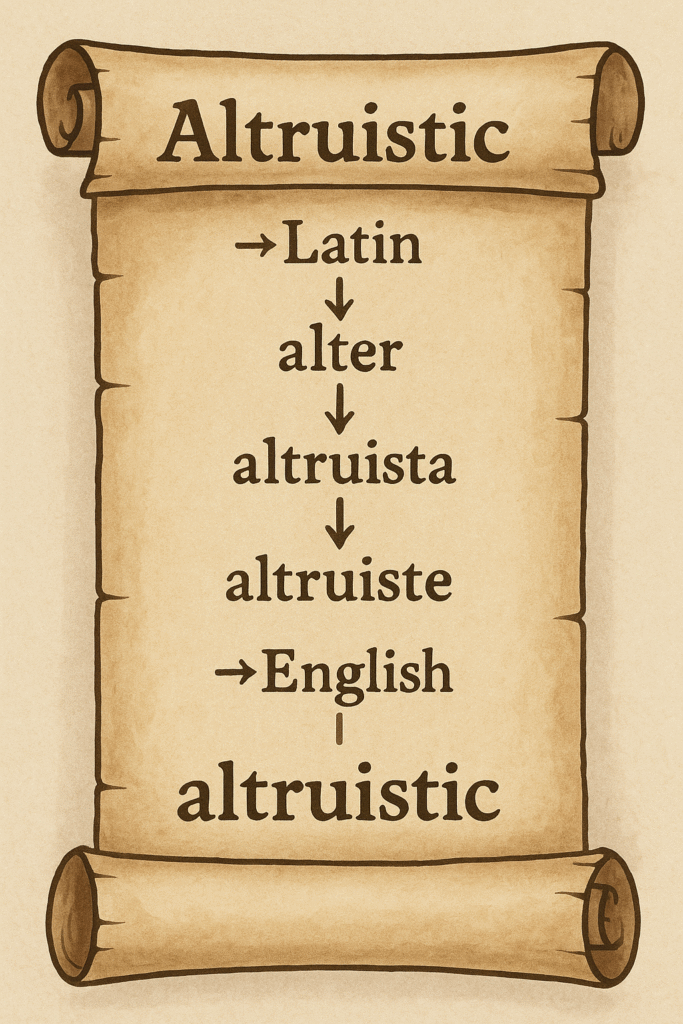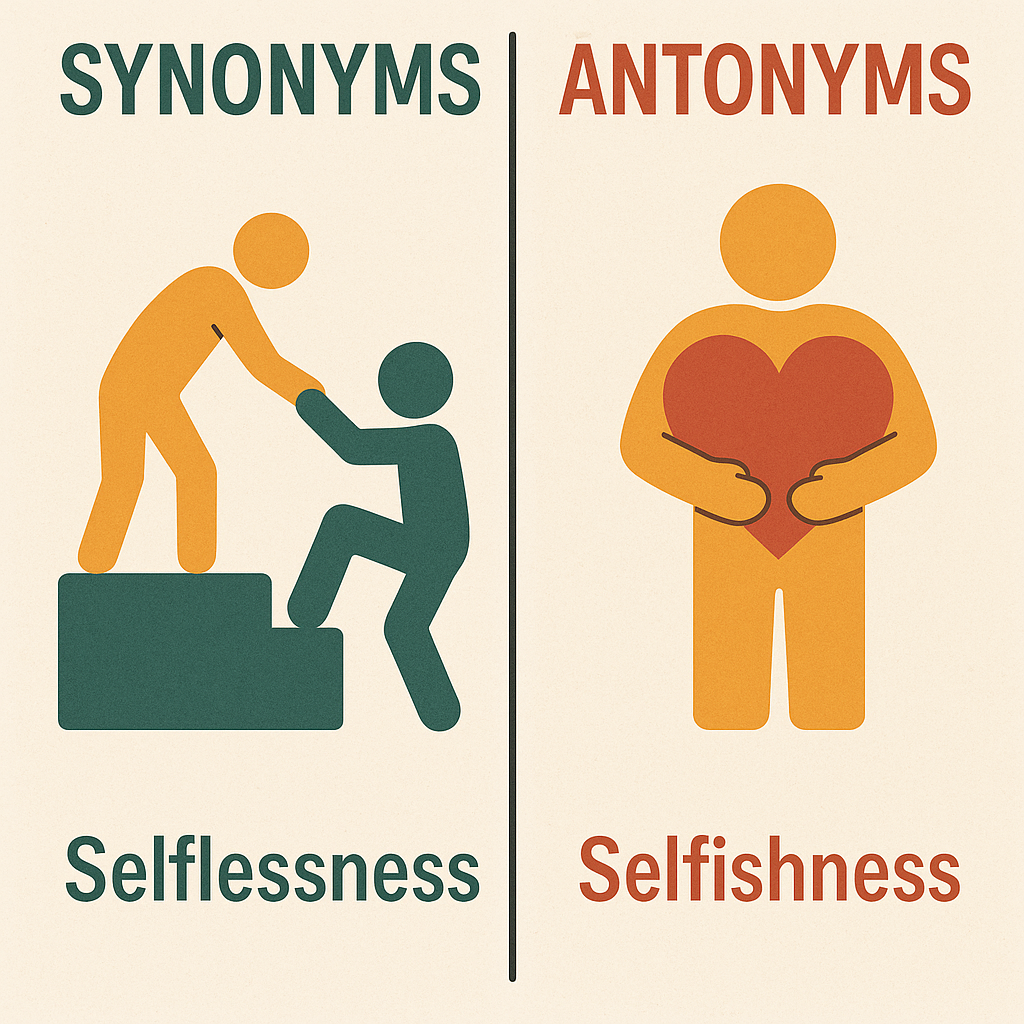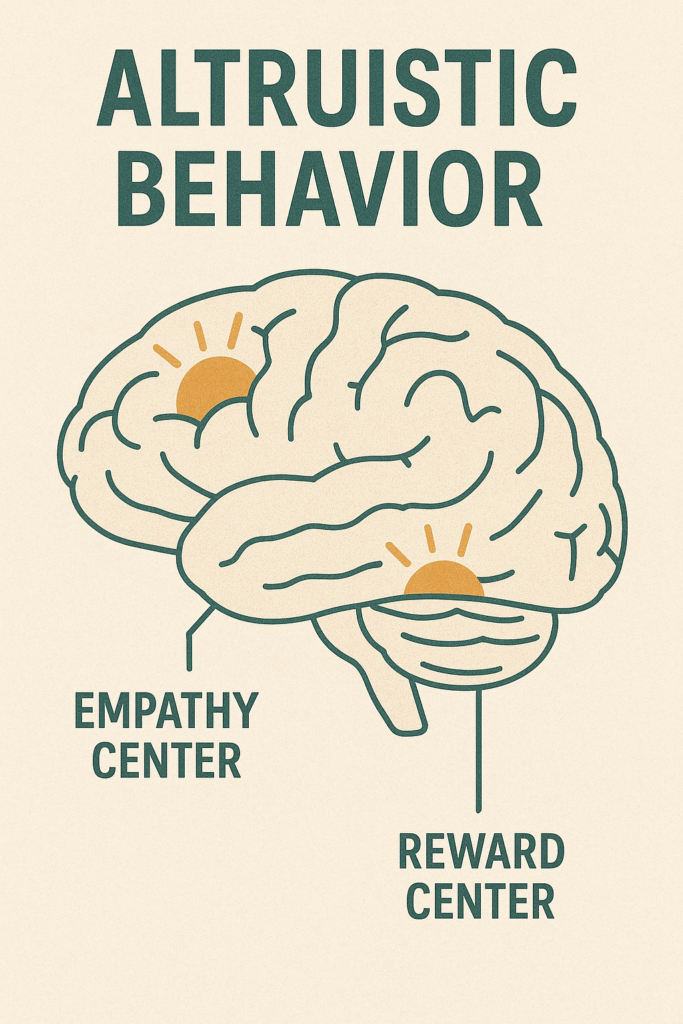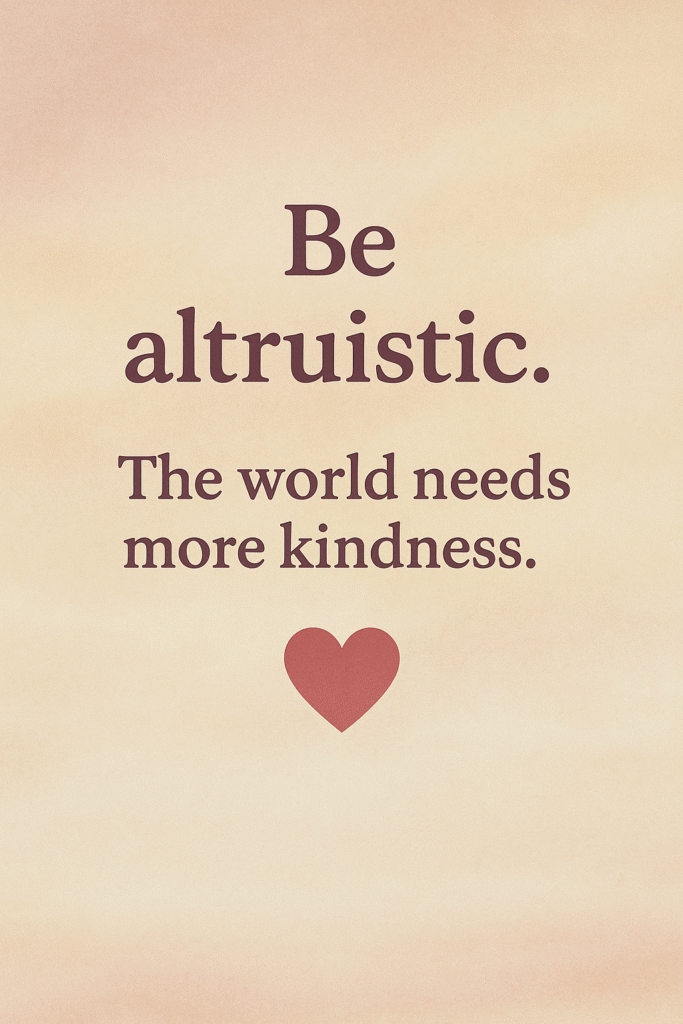📘 Introduction to “Altruistic”
In a world that often celebrates competition, the word “altruistic” stands out for all the right reasons. It represents kindness, compassion, and putting others first without expecting anything in return. But what does altruistic really mean, and why is it such a powerful word in both language and life?
Whether you’re preparing for an English exam, writing a personal essay, or simply aiming to improve your vocabulary, understanding this word can help you speak with clarity and depth. Let’s explore everything about “altruistic”—its meaning, examples, history, and how it’s used in psychology, society, and everyday conversation.
📖 Meaning and Definition of Altruistic
🔹 What does “Altruistic” mean?
Altruistic (adjective) refers to showing selfless concern for the well-being of others. An altruistic person is motivated by a desire to help others rather than by personal gain.
📌 Dictionary Definitions:
- Cambridge Dictionary:
“Showing a wish to help or bring advantages to others, even if it results in disadvantage for yourself.”
➡️ Cambridge Dictionary - Merriam-Webster:
“Having or showing an unselfish concern for the welfare of others.”
➡️ Merriam-Webster - Dictionary.com:
“Unselfishly concerned for or devoted to the welfare of others.”
➡️ Dictionary.com
🧬 Origin and Etymology
The word altruistic comes from the Latin “alteri”, meaning “other.” It was popularized in the 19th century by philosopher Auguste Comte, who described altruism as living for the sake of others.
Over time, altruistic became a widely used adjective to describe people, behaviors, or acts that are done entirely for the benefit of others.

🗣️ Pronunciation Guide
- Phonetic Spelling: al-troo-IS-tik
- IPA: /ˌæl.truˈɪs.tɪk/
📌 Emphasis is on the third syllable: IS
🤝 Altruism vs. Altruistic
Though related, altruism and altruistic have different uses:
| Word | Part of Speech | Meaning | Example |
|---|---|---|---|
| Altruism | Noun | The act or belief in selfless concern | “He’s motivated by pure altruism.” |
| Altruistic | Adjective | Describing someone who is unselfishly caring | “Her altruistic actions helped many people.” |
✅ Synonyms and ❌ Antonyms
✅ Synonyms of Altruistic:
- Selfless
- Generous
- Kind-hearted
- Compassionate
- Noble
- Philanthropic
❌ Antonyms of Altruistic:
- Selfish
- Greedy
- Egoistic
- Self-centered
- Narcissistic

✍️ Example Sentences with “Altruistic”
🔹 Basic Sentences:
- “She made an altruistic decision to donate her savings.”
- “His altruistic behavior during the crisis saved lives.”
🔹 In Real Life:
- “Doctors working in underdeveloped areas often show altruistic dedication.”
- “Volunteering without recognition is a true sign of an altruistic spirit.”
🧠 Altruistic in Psychology and Ethics
In psychology, altruistic behavior refers to actions intended to benefit others with no expectation of reward.
💡 Psychological Concepts:
- Empathy-Altruism Hypothesis: Suggests that altruism arises from genuine empathy.
- Evolutionary Altruism: Describes behaviors that benefit others at a cost to the individual, even in animal species.
📖 Ethical Perspectives:
Philosophers often debate whether true altruism exists or if it’s just hidden self-interest. Still, societies admire and reward altruistic acts as moral behavior.

🌍 Altruistic Behavior in Society
Altruism can be seen across professions, religions, and social structures:
- Healthcare: Nurses and doctors who serve in crisis zones.
- Religion: Teachings in Buddhism, Christianity, and Islam all emphasize altruism.
- Social Movements: Activists fighting for justice on behalf of others.
📌 Acts of altruism build trust, cooperation, and long-term societal health.
🏠 Common Usage in Daily Life
Even simple, everyday actions can be altruistic:
- Holding the door open for someone
- Giving your seat to an elderly person
- Donating food or clothes
- Checking in on a sick friend
- Volunteering at local events

🧾 How to Use “Altruistic” Effectively
🔹 Sentence Structure:
- ✅ “He is altruistic in nature.”
- ✅ “Altruistic people are the backbone of charity work.”
- ✅ “Her decision to forgive was completely altruistic.”
🔹 Resume Use:
“Altruistic team player with a strong commitment to community outreach.”
🚫 Common Mistakes and Misunderstandings
- Misusing the word for ‘charitable’ only:
Not all charity work is altruistic — intent matters. - Incorrect Grammar:
❌ “He is altruistic to help.”
✅ “He is altruistic and always helps others.” - Spelling Errors:
Watch for common misspellings like “altrustic” or “alturistic.”
📝 Quiz: Test Your Understanding
Choose the correct sentence:
a) She is altruistic about her salary.
b) She is altruistic in helping the poor. ✅
c) He showed an altruistic to smile.
d) Altruistic are delicious meals.
🔚 Conclusion and Summary
The word altruistic reflects the better side of humanity — compassion, generosity, and love. Whether used in a speech, article, essay, or conversation, it carries emotional and ethical weight.
By learning how to use altruistic accurately, you not only grow your vocabulary but also embrace a mindset the world truly needs more of.
🔗 Outer Links for Extra Reading:
💬 Your Turn!
Comment below:
“What’s one altruistic thing someone has done for you recently?”
We’d love to read your story! 💛

🔤 Adept: Meaning, Usage, Examples, and Real-World Applications